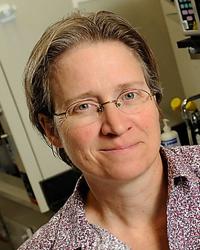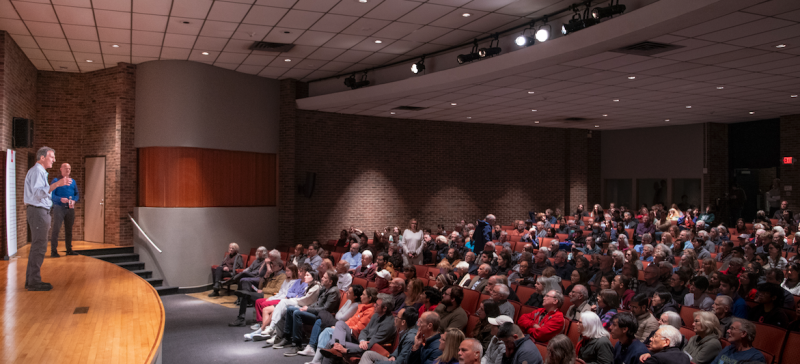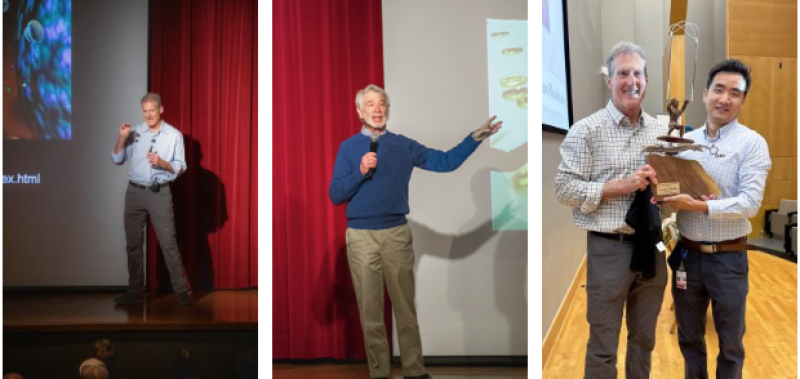Schoenberg Lectureship
The Schoenberg Lectureship
The Center for RNA Biology (CRB) launched an annual lectureship in 2023 to honor Dr. Daniel Schoenberg’s nearly quarter century-long leadership of RNA research at OSU and the Midwest. Among his many achievements in his distinguished career, two of Dr. Schoenberg’s key legacies are the founding (along with partner institutions) of the Rustbelt RNA Meeting in 1999 and establishment of the Center for RNA Biology at OSU in 2012. He served as the CRB’s first director from 2012-2018.
The Schoenberg Lectureship is an annual celebration of the triumphs of RNA research with participants from the scientific community and the general public. The lectureship is comprised of two talks, a public lecture and a technical research seminar. By showcasing the remarkable recent achievements and tremendous future potential of RNA research to revolutionize medicine and address big societal challenges, we expect this two-lecture format to capture the interest of the general public and inspire the OSU research community.

Save the Date!
2026 Schoenberg Lecture
November 15-16, 2026
Dr. Rachel Green
Johns Hopkins School of Medicine
2025 Schoenberg Lecture

The CRB hosted the 3rd Annual Schoenberg Lecture November 9 - 10, 2025. This annual event honors Dr. Daniel Schoenberg’s two decades of leadership in promoting RNA science at OSU. Dr. Schoenberg was the founding Director of the CRB and this annual event is designed to celebrate the triumphs of RNA research with the scientific community and the general public.
This year’s lecture was presented by Dr. Craig Mello of UMass Chan Medical School, 2006 Nobel Laureate. His engaging public lecture, was co-sponsored by the College of Arts & Sciences’ Science Sundays, and drew a near-capacity crowd of nearly 500 attendees at the Fawcett Center, while Monday’s scientific seminar filled 170 DHLRI beyond capacity.

Following the public lecture, CRB trainees presented 11 outstanding posters in a lively session designed to communicate their research to a lay audience. The judges—Dr. Susan Lang (English), Dr. Blake Szkoda (Forge Biologics), and Dr. Aru Kavoor (Postdoctoral Researcher)—commended all participants and noted how difficult it was to select winners.
Congratulations to the poster award winners!
Alvin Antony Chungath (Musier-Forsyth)
Poster: Blocking HIV-1 RNA's Journey: No Rev, No Ride
James Riddell (Sullivan)
The Secret life of Viruses: Tiny Germs Solving Giant Problems
Honorable Mentions:
Presenter: Jackson Hastings (Hopper)
Presenter: Debadrita Paul (Singh)
Click to view the 2025 Schoenberg Lectureship Posters
View More Photos Here
About Dr. Craig Mello
Dr. Craig C. Mello received his B.Sc. degree in biochemistry from Brown University in 1982 and received his PhD from Harvard University in 1990. From 1990 to 1994 he conducted postdoctoral research at the Fred Hutchinson Cancer Research Center in Seattle, Wash. He has been a member of the University of Massachusetts Chan Medical School faculty since 1995, and a Howard Hughes Medical Investigator from 2000-2024. His pioneering research on RNAi, in collaboration with Dr. Andrew Fire, has been recognized with numerous awards culminating with the prestigious 2006 Nobel Prize in Physiology or Medicine.
Past Events
2025 Schoenberg Lectureship - Dr. Craig Mello
2024 Schoenberg Lectureship - Dr. Adrian Krainer
2023 Schoenberg Lectureship - Dr. Melissa Moore
